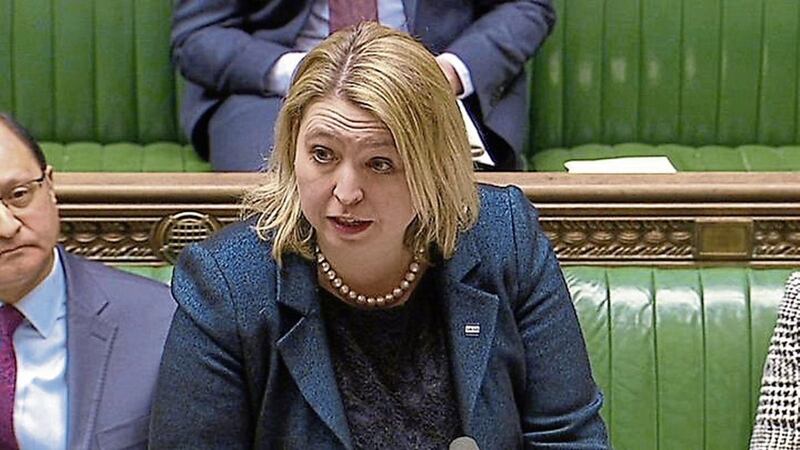Stormont assembly members' pay will be reduced by more than £13,000 as they are not performing all their functions, Secretary of State Karen Bradley said.
The devolved legislature in Belfast has not sat since early last year in a row over identity issues like the Irish language, which has prevented the appointment of ministers.
Repeated negotiations convened by the British and Irish governments have failed to persuade former coalition partners the DUP and Sinn Féin to reconcile their differences.
Mrs Bradley has also decided not to call new Stormont elections and will bring forward legislation to allow civil servants to make decisions in the absence of ministers as public reforms have stalled.
She is to hold talks with the local political parties in the next few weeks about re-establishing formal powersharing negotiations and has not ruled out appointing an external mediator to help break the deadlock.
She told Parliament: "While assembly members continue to perform valuable constituency functions, it is clear that during any such interim period they will not be performing the full range of their legislative functions.
"So, in parallel, I will take the steps necessary to reduce assembly members' salaries in line with the recommendations made by Trevor Reaney.
"The reduction will take effect in two stages, commencing in November - it would not reduce the allowance for staff as I do not think that MLAs' staff should suffer because of the politicians' failure to form an Executive."
Mrs Bradley's predecessor as secretary of state, James Brokenshire, commissioned former Assembly chief executive Mr Reaney to examine the controversial issue of paying assembly members.
He recommended the 27.5% cut, a move that would take the standard salary rate of £49,500 down to £35,888 in two stages, beginning in November, with a further cut three months later.
Public services have suffered because no ministers are in place to make major decisions.
Controversial issues like provision of abortion or same-sex marriage have not been addressed in the absence of an Assembly.
DUP leader and former Stormont first minister Arlene Foster said: "It is deeply frustrating and utterly careless that Sinn Féin has decided to block government for almost 600 days."
She added: "Ultimately, Northern Ireland needs a ministerial decision-making mechanism which respects democracy."
She and her Ulster Unionist counterpart Robin Swann welcomed the pay cut for assembly members, a demand which gained widespread public support.
Sinn Fein deputy leader Michelle O'Neill said the secretary of state only suspended her powers to call an election because she faced the prospect of a court ordering her to do so.
She added: "That is a retrograde step. Any attempt to move away from the Good Friday Agreement or towards direct rule will fail.
"Clearly, the British Government's reliance on the DUP remains a central problem and if any process around restoring the institutions is to be credible, Karen Bradley must begin prioritising the rights of citizens over Tory Party self-interest."
She said clarity was needed for officials and issues such as compensation for victims of Historical Institutional Abuse should not be caught up in legal or political quagmire.
She added: "It should have been addressed long before now. Equally, the reduction in MLA pay should have been introduced months ago.
"Sinn Féin told Karen Bradley that on several occasions but it is clear she was reluctant to move because of resistance from the DUP.
"That position has now become untenable and it is right that wages are finally being reduced."
Explaining the need for a "stepped approach" staggering the pay reductions, Mr Reaney said the impact of any salary reduction on MLAs' personal circumstances has been acknowledged.
He said research showed assembly members spent 50% to 60% of their time on constituency work and the average working week could extend to up to 80 hours.
The secretary of state also addressed the issue of civil service decision making.
She said: "I recognise that there is a need to provide reassurance and clarity to both the Northern Ireland Civil Service and the people of Northern Ireland on the mechanisms for the continued delivery of public services.
"So, the legislation I intend to introduce after the conference recess will also include provisions to give greater clarity and certainty to enable Northern Ireland departments to continue to take decisions in Northern Ireland in the public interest and to ensure the continued delivery of public services."








